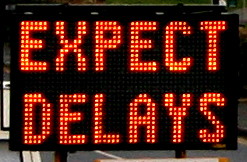Today’s article is a repost of an article written by Rob Richardson of Off Grid Survival called 7 Very Real Reasons to Start Prepping.
7 Very Real Reasons to Start Prepping
We often get comments and emails from readers asking how they can convince their friends and family to start prepping.
From friends and family members that truly believe the government will save them during a time of crisis, to those that have been brainwashed into believing that preppers are all tinfoil hat wearing nutjobs, prepping can often be a touchy or even taboo subject to talk about.
Here are 7 reasons that might help convince your friends and family that it’s time to become a prepper.
1. Unemployment
According to the most recent numbers, the actual unemployment rate in this country is close to 22%. The average time it takes to find employment is at a record high of 39.2 weeks. Even those that see little value in prepping for a SHTF situation should understand the need to prep for the possibility of being hit by unemployment.
Prepping isn’t always about preparing for an end of the world scenario. It’s also about being prepared for those small scale events in life that can feel cataclysmic if we’re not prepared
2. Economic Problems
You don’t have to buy into the possibility of a total economic collapse, but you should at least realize that our country is in big financial trouble. With over 16 trillion dollars in debt, and unfunded obligations that make the actual debt number about $120 trillion, it doesn’t take an economist to see that we are in for some major trouble in the months and years ahead.
3. Natural Disasters
A number of people woke up real quick after seeing what happened during Hurricane Katrina. In under 24 hours, the city of New Orleans became a prime example of how quickly civilization could break down. Before our eyes we got a glimpse of what would happen during a full scale collapse; as people took to the streets to loot, riot, rape and even murder their fellow citizens.
4. It’s just like buying Insurance
Some people find the subject of prepping to be a little bit out there. When I come across these people, I often ask them if they have health or vehicle insurance. In my opinion, having a dedicated section in your budget for prepping is no different than buying vehicle insurance or a health insurance policy.
5. Shooters, Lunatics and the Extreme Fringe of Society
While active shooter situations and terrorist attacks are still pretty rare, it’s a phenomenon that does seem to be increasing in regularity. From the recent mass shootings to the growing number of terrorist attacks around the globe, these events do happen and they are something that we need to be prepared for.
6. The Cyber Threat
Our society is becoming increasingly dependent on cyber technologies; but according to Cyber Security expert Eugene Kaspersky, co-founder of the Kaspersky Lab, that dependence has left us extremely vulnerable. In fact, he is warning that emerging cyber threats could spell “the end of the world as we know it”. The threat is real, and the threat has the ability to set the world back 200 years in a matter of days.
7. The Pandemic Threat
According to Jason Tetro, a microbiologist and coordinator for two research centers at the University of Ottawa, the Emerging Pathogens Research Centre (EPRC) and the Centre for Research on Environmental Microbiology (CREM), “the world is becoming increasingly more likely to see a major (pandemic) event.”
When that happens, it will affect our infrastructure severely. By not having the human resources to work, protect and maintain our antiquated infrastructure, things will begin to rapidly deteriorate and leave us even more vulnerable to attack.






